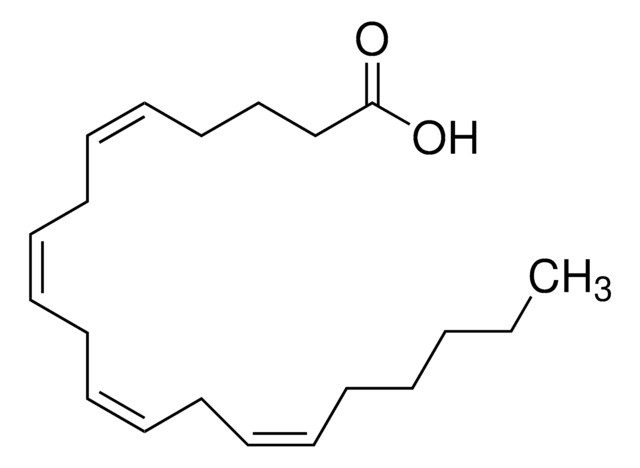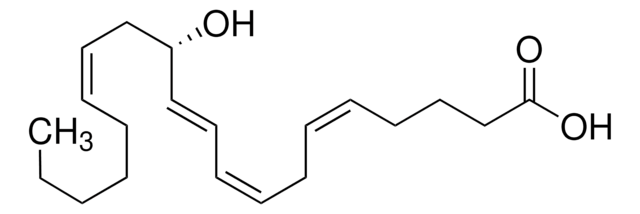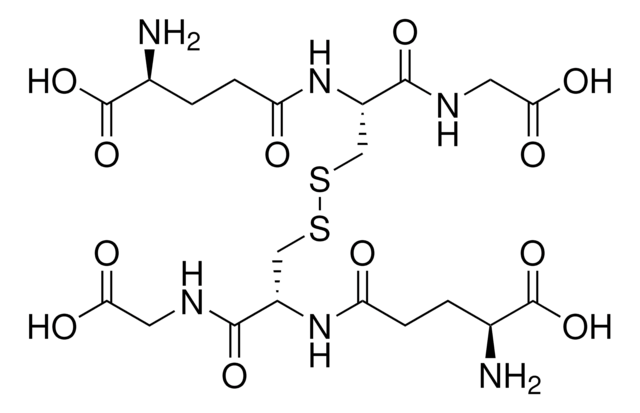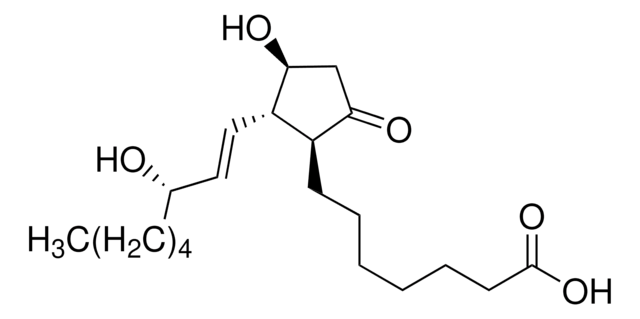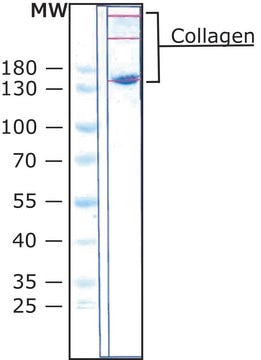H3023
20-Hydroxy-(5Z,8Z,11Z,14Z)-eicosatetraenoic acid
~100 μg/mL in ethanol, ≥90% (HPLC)
Synonym(s):
20-HETE, 20-Hydroxyarachidonic acid
About This Item
Recommended Products
Quality Level
assay
≥90% (HPLC)
form
liquid
concentration
~100 μg/mL in ethanol
shipped in
dry ice
storage temp.
−20°C
SMILES string
OCCCCC\C=C/C\C=C/C\C=C/C\C=C/CCCC(O)=O
InChI
1S/C20H32O3/c21-19-17-15-13-11-9-7-5-3-1-2-4-6-8-10-12-14-16-18-20(22)23/h1,3-4,6-7,9-10,12,21H,2,5,8,11,13-19H2,(H,22,23)/b3-1-,6-4-,9-7-,12-10-
InChI key
NNDIXBJHNLFJJP-DTLRTWKJSA-N
Biochem/physiol Actions
Packaging
signalword
Danger
hcodes
Hazard Classifications
Eye Irrit. 2 - Flam. Liq. 2
Storage Class
3 - Flammable liquids
wgk_germany
WGK 1
flash_point_f
57.2 °F - closed cup
flash_point_c
14.0 °C - closed cup
ppe
Eyeshields, Gloves, type N95 (US)
Certificates of Analysis (COA)
Search for Certificates of Analysis (COA) by entering the products Lot/Batch Number. Lot and Batch Numbers can be found on a product’s label following the words ‘Lot’ or ‘Batch’.
Already Own This Product?
Find documentation for the products that you have recently purchased in the Document Library.
Customers Also Viewed
Our team of scientists has experience in all areas of research including Life Science, Material Science, Chemical Synthesis, Chromatography, Analytical and many others.
Contact Technical Service